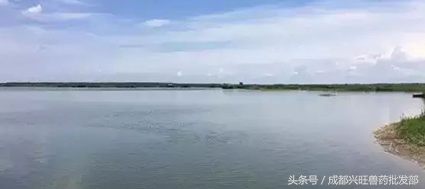1, the temperature is low, fertilizer and water is difficult
The low temperature season is not that there are no algae, but what kind of algae is suitable for cultivation in the low temperature season, chlorella and small ring algae can solve the problem of hypoxia under the ice.

2, insufficient light time, fertilizer water is difficult
This problem in the breeding of large water bodies, selected in low-light algae species, such as diatoms of microcyclic algae suitable for low light, or selected in the compound algae culture. When the algae biomass is large, the reproductive capacity in the pond can be improved and it can quickly become a dominant species.
This is the water of an earthen pond where chlorella and small ring algae are cultivated together
3. Lack of algae seeds, fertilizer and water are difficult
Now there are many algae species that can be cultivated in the outer pond, and suitable algae species can be selected according to their own region (south, north), pond conditions, and breeding varieties.
Chlorella cultured outer pond water
4. Different algae need different nutrients
For example, the nutrients required for the cultivation of chlorella and chycobacteria are different, and chlorella needs silicates while chlorella does not.
5. Large algae such as moss, or too many weeds
Filamentous algae such as moss are algae that are particularly easy to reproduce in the low temperature season, especially for ponds that have not been cleared and uncultured algae, if not controlled, they will multiply in large quantities to occupy the ecological niche of the entire pond, and finally seriously affect the growth of breeding species.
6. There are many zooplankton, and it is difficult to fertilize and water
Because algae is the best food for zooplankton, if you do not control zooplankton algae is not cultivated, first of all, the cultivation of algae to be microscopic, if there are many zooplankton, you can use a variety of methods to clear the pond treatment or chemical methods, the use of chemical methods also need to detoxify.
7. There are toxins or other substances that affect the growth of algae in the water body
This problem should be taken according to the specific situation to take corresponding measures, it is best to take a water sample for algae cultivation experiments, to minimize the impact factor, or choose different culture methods, using different algae, because each type of algae adapts to the environment is different.
8. The pH value is too high or too low, and the fertilizer is difficult
Algae is most suitable for growth of pH between 6.5-8.5, too high and too low are not conducive to the growth of algae, can take the adjustment of pH of the substance, such as high can use acidic substances, low can use alkaline substances first to correct the pH, some weak acid and weak alkalinity components can be.
9. The water body is muddy, and there are many suspended solids in the water
Water turbidity reduces the transparency of water and reduces light efficiency, while the composition of suspended solids has different effects on algae. You can choose the substance with good adsorption to first adsorb the suspended solids, adsorb and settle to the bottom of the pond, and then degrade with microorganisms, improve the water quality and then cultivate algae.
The above aspects are the main reasons for affecting fertilizer water. In short, there are many practical situations in the fertilizer and water problem, which need to be analyzed specifically.